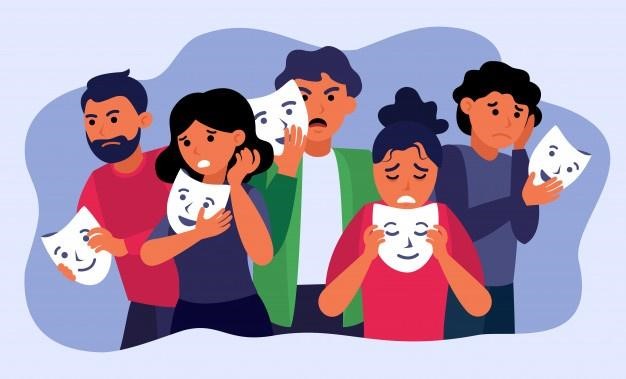A Quick Guide
Dissociative amnesia is a condition where a person loses the ability to recall specific memories or important personal information. It is often linked to childhood trauma or environmental factors like wars or natural disasters. Treatment involves supportive therapy, psychotherapy (such as CBT and DBT), creative therapies, relaxation techniques, and, in some cases, medication for associated symptoms like depression or anxiety.
Understanding Dissociative Amnesia
A person with dissociative amnesia loses the ability to recall either specific memories from their past or just other important personal information. This memory loss can range in severity from little information to complete periods of time. Managing these symptoms typically requires long-term treatment. There are a few main types of dissociative amnesia that have various impacts on a person’s life, and it affects 1-3% of the general population. Dissociative amnesia patients typically retain new information and daily routines.
What are the causes of Dissociative Amnesia?
There is a clear-cut link between dissociative amnesia and childhood trauma. This trauma can be in the form of physical, mental, emotional, or sexual abuse during the developmental age of a child.
Or there could be other factors at play such as a person’s environment. For instance, those who have survived wars, been a part of military combat, or have gone through natural disasters are much more likely to develop different types of dissociative amnesia.
There is no typical age of onset for this condition. It is also possible that there is a genetic link between this condition as close family members often have a tendency for dissociative amnesia.
How can Dissociative Amnesia be treated?
Dissociative amnesia is a persistent illness, and managing the symptoms may require long-term care. Though even with treatment, people with dissociative amnesia might not always recall their memories. In some circumstances, such as if the memories are associated with a traumatic occurrence, the person may not wish to restore their memories at all.
Depending on the degree of memory loss, a person’s treatment plan might be developed in collaboration with a mental health specialist. Supportive therapy is typically the initial line of treatment when memory loss only lasts for a brief length of time.
More attention is needed for those with more severe memory loss, including a secure, encouraging environment that aids in their natural memory recovery. Different combinations of the following treatment for dissociative amnesia may include:
Psychotherapy
People who experience dissociative amnesia may find that psychotherapy is helpful in managing their symptoms and helping them reclaim their memories.
Therapy can assist the patient in retrieving lost memories as well as teaching them how to deal with issues brought on by their amnesia, handle new situations safely, and return to their previous level of functioning.
There are various forms of psychotherapy that can be practiced, including:
Cognitive Behavioral Therapy (CBT)
This looks at deep-rooted conflict or trauma as well as negative cognitive processes. Once these pessimistic beliefs are identified, healthy coping mechanisms can be used to counter them.
Dialectical behavioral therapy (DBT)
This provides coping mechanisms that support a person in overcoming negative thoughts. Additionally, it helps with mood regulation.
Family therapy
It teaches loved ones how to support the patient in coping with their dissociative amnesia symptoms and educate them about the disorder.
Other strategies
Some other types of strategies for the treatment of Dissociative amnesia include the following:
Creative Therapies
People can explore and express their thoughts, emotions, and experiences in a secure and creative setting with the help of creative therapies such as art and music therapy.
Relaxation techniques
Practices like meditation and relaxation can help people manage their dissociative symptoms and increase awareness of their internal moods.
Hypnotherapy
This approach induces a new level of consciousness by using extreme relaxation, concentration, and intense focus. It enables people to examine memories, thoughts, and emotions that may have been buried in their conscious minds.
Medication
While there is no specific pharmacological treatment for Dissociative amnesia. Some people with dissociative disorders may experience severe symptoms of depression or anxiety due to this condition. In that case, a doctor may recommend anti-anxiety medication, antidepressants, mood stabilizers, etc.
Watch: [Tips to deal with Amnesia in Dissociative Identity Disorder]
We hope you found this article useful in learning more about Dissociative amnesia along with its causes and treatment options.



 Gestalt Therapy: All you need to know about it
Gestalt Therapy: All you need to know about it  Trauma and Stressor-Related Disorders: Causes, Symptoms, & Coping Strategies
Trauma and Stressor-Related Disorders: Causes, Symptoms, & Coping Strategies  Teletherapy: The Benefits, Types, Challenges, and Uses
Teletherapy: The Benefits, Types, Challenges, and Uses  Signs of Depression in Men: Recognizing the Symptoms
Signs of Depression in Men: Recognizing the Symptoms  Dissociative Fugue: Symptoms, Causes, Treatment & More
Dissociative Fugue: Symptoms, Causes, Treatment & More  Interpersonal therapy IPT: A brief overview
Interpersonal therapy IPT: A brief overview